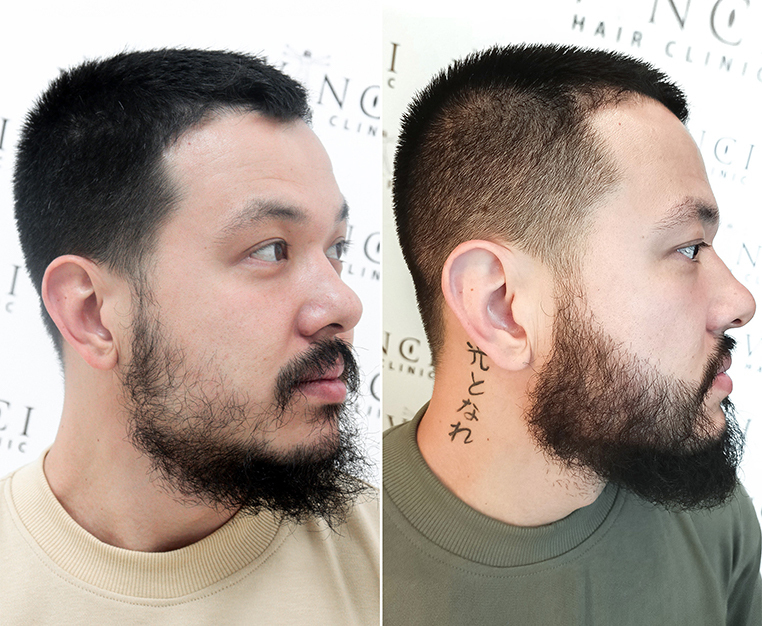Hair transplants are on the rise around the world. A report published last year by Allied Market Research revealed that the global hair transplant market was worth nearly $5 billion in 2021. That figure is forecast to rise to $30 by 2030. Impressive, right? But that’s only half the story. Anecdotally, hair specialists will tell you that those getting treatment represent the tip of the iceberg and that there are many more people experiencing hair loss who do nothing about it. At least one study confirms that view.
What is it that stops people from getting a hair transplant? There are a few reasons, but one of the main ones is that hair loss treatment is still regarded as a cosmetic procedure.
Let’s look at that more closely.
Perpetuating the Myth
The definition of the word ‘cosmetic’ in the dictionary relates to the appearance of something rather than its substance. Categorising hair transplant surgery as a cosmetic procedure, therefore, perpetuates the myth that people having the treatment are motivated by vanity alone. That undoubtedly deters people from coming forward. Who wants to be labelled shallow or vain, after all?
The reality is different. Many research papers have demonstrated that hair loss can cause genuine psychological trauma. It devastates an individual’s self-esteem and self-confidence, affecting their capacity to do their job and sustain personal relationships.
But it’s just not just its association with cosmetic surgery that harms the hair restoration ‘brand’. People are also discouraged by stories of botched hair transplants that continue to make the news. Worryingly, these don’t all emanate from far-flung places like Turkey or eastern Europe. Some pop up in places like the UK, and the reason they do is also linked to hair transplant surgery’s classification as a cosmetic procedure.
Unethical Clinics
The information about botched hair transplants in the UK is not publicly available. It’s therefore difficult to put a figure on the number. However, many reputable clinics believe these cases to be a direct result of the profit-above-all culture developing amongst some budget operators in the hair transplant market. Unethical clinics are driven by the need to cut costs and sell more services. They lure clients through their doors with low-price offers and make savings by spending less on staffing and equipment.
What does ‘less on staffing’ look like? Quite simply, it means that unqualified individuals are left to do the work that should be done by trained doctors. There may be a doctor on the premises, but rarely will that person’s hand be the one guiding the surgical blade. Untrained technicians are sometimes left to make the incisions in your head, a scenario which would be unthinkable in a more reputable clinic. As for proper post-op care, that gets dumped in the effort to save money and undercut the competition.
Regulatory Concerns
This happens because of how cosmetic surgery is regulated. In the UK, both plastic surgery (which covers cosmetic procedures) and medical surgery are regulated by the General Medical Council (GMC) and the Care Quality Commission (CQC). It’s important to note, however, that anyone can legally call themselves a ‘cosmetic surgeon’ in the UK, regardless of whether or not they are a registered medical practitioner.
This has implications for hair transplant surgery since it’s classed as a cosmetic treatment. If it was categorised as a medical treatment, only properly qualified doctors would be allowed to undertake hair surgery. Hair transplant surgery is a safe process when performed by skilled medical professionals, but as with all surgical procedures, there are risks and possible complications. These risks are amplified when the process is carried out by untrained staff.
All this underlines the need to research a practitioner’s credentials and experience before undergoing any cosmetic procedure. That includes hair transplant surgery. It’s vital to ensure that the individual performing your surgery has the necessary qualifications, training, and experience to complete the procedure safely and effectively. You should also look for someone who is registered with the GMC in the UK, then confirm with the clinic that this is the person who will be doing the surgery.
Conclusion
Many people believe that hair transplant surgery should be classified as a medical procedure and not as a cosmetic one. It is a life-changing solution to a condition that causes psychological distress. As such, it should be done safely and effectively. Make sure you avoid unscrupulous operators by choosing a long-established, reputable clinic. Do your research!
If you’re experiencing excessive hair loss, you shouldn’t put off getting it checked. A Vinci Hair Clinic specialist can help you with that. We offer a free, no-obligation consultation to all our new clients. You can choose to have your consultation in person or over the phone with the aid of photographs. Why wait? Get in touch with us and book your appointment today!


